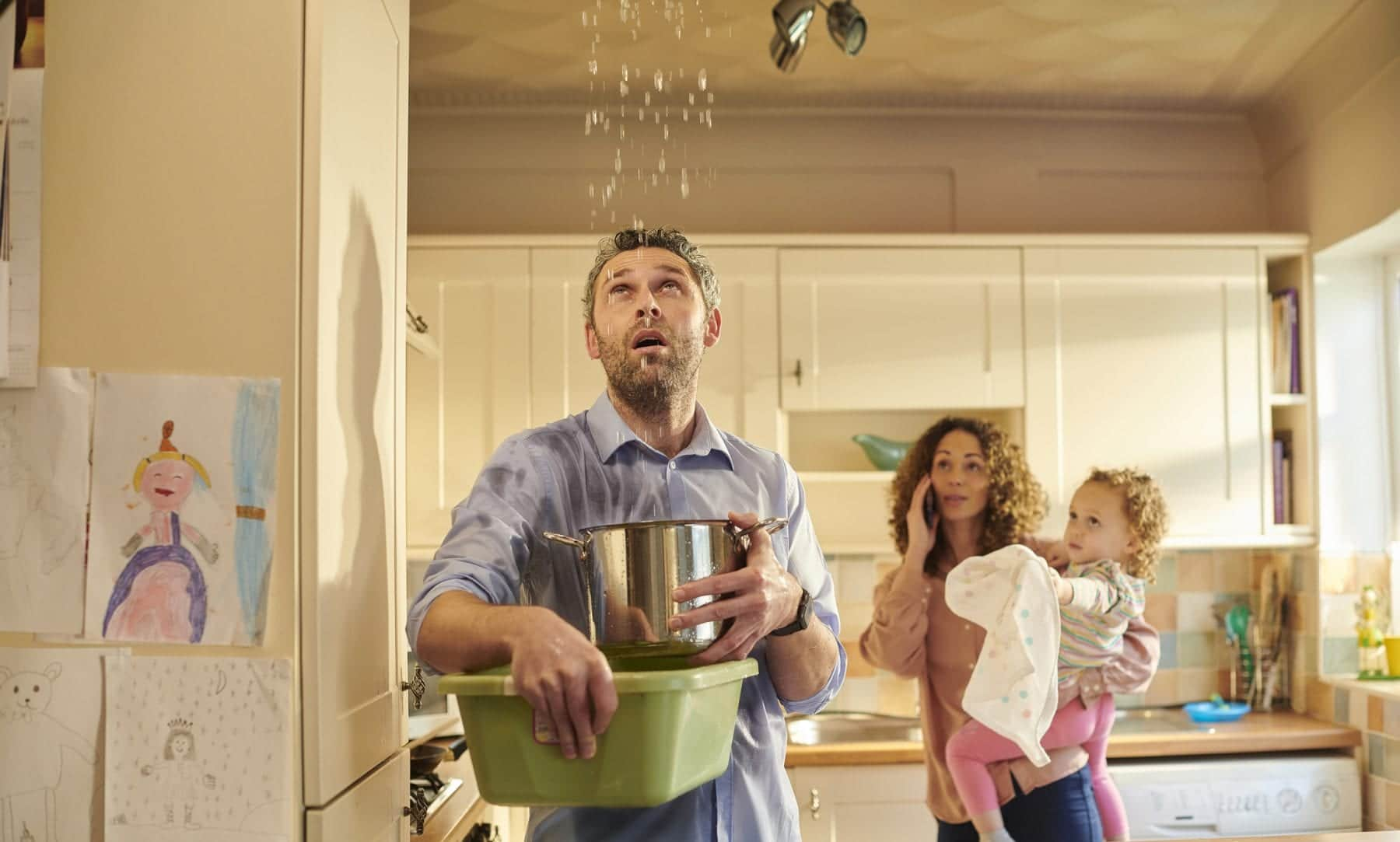
Why has strata living been an important feature of the Australian housing landscape lately?
May 20, 2021
8 key points that strata property owners must know about the Owners Corporations Act amendments 2021
June 28, 2021
Why has strata living been an important feature of the Australian housing landscape lately?
May 20, 2021
8 key points that strata property owners must know about the Owners Corporations Act amendments 2021
June 28, 2021Living in a strata title complex has many benefits, but also requires additional laws and rules to define ownership and responsibility in a number of areas, including obligations for maintenance and repairs. This is where understanding who is required to maintain and repair problems becomes tricky – no more so than with issues relating to water damage.
Basically, there are 3 possible options for maintenance and repairs in strata living:
- The owner
- A neighbour
- The Owners Corporation / Body Corporate
To make it slightly more intricate with water damage, there is an added complexity of it sometimes being difficult to determine the source of the water damage - which may require investigation in internal walls and structures that are not open to easy visual assessment. Also, the place where the water damage has occurred may not be the source of the problem – and it is necessary to establish the source of the problem to identify who is responsible. If water damaged is caused by a faulty appliance, then contacting a professional appliance repair technician to identify the problem is needed.
Below is a simple concept to use as the starting point:
- Pipes and inlets that are servicing multiple lots are the responsibility of the Owners Corporation/Body Corporate
- Pipes and inlets that service only a single lot are the responsibility of the Lot Owner – ie. you, or your neighbour.
In strata titles, the Body Corporate/Owners Corporation (OC) is generally responsible for the maintenance of the building. This may include roofs and guttering. However, some States and Territories have different classifications for buildings such as Queensland with the Standard Format Plan and Building Format Plan options and so the roof, for example, may actually be the responsibility of the Lot Owner.
Sources of water damage
In the first instance of water damage occurring, the source needs to be identified and can be from the following:
- appliances including refrigerators, dishwashers and washing machines
- drains, pipes, guttering and downpipes, drainage and sewage systems
- rainwater tanks, swimming pools or spas and waterbeds
- baths, showers, sinks, toilets and basins
- fixed heating or cooling systems
- water mains, fire hydrants or water supply pipes
- floods or storms
Costs for repairing water damage is also determined by the category of the water causing the damage - Clean Water, Grey Water or Black Water.
If your property has a Building Manager, they should be your first point of contact if you come across any strata plumbing issues. Contacting your insurance company and your Body Corporate Management company would be your next steps in the process.
Whose insurance do you use?
Insurance adds to the complexity of it all for two reasons:
- No insurance policy in strata covers all aspects like it does in a separate dwelling, where you can get Home and Contents cover as blanket coverage for your home. Generally speaking, OC/Body Corporate strata insurance does not include internal fittings and fixtures (lights, carpets, floorboards, furniture, electrical items, jewellery and other personal belongings).
- And – unfortunately, insurance claims with water damage do not always cover damage repairs if proper maintenance was not carried out. The product disclosure statement on an insurance policy will go into details about what is covered and when, and it is important to take the time to understand this.
In order to have optimum coverage (and this also can vary State to State), in a tenanted strata property there will need to be 3 different policies for the property:
- Body Corporate insurance on the building – the main structure of the building including standard fittings inside the building such as kitchens, bathrooms, roofs, windows, balconies etc. (varying from State to State)
- Landlord insurance on the apartment/townhouse contents – to cover carpets, blinds, air conditioning units (in some states) for example, which will not be covered by either the Owners Corporation/Body Corporate insurance or insurance for contents taken out by tenants.
- Tenants Content insurance – for the tenants’ belongings and furniture.
So take the time to understand the intricacies of your ‘building’ and get the right insurance cover for your property based on your level of ownership. Make sure as a landlord or owner occupier, that your property has the right amount of coverage for the fixtures and fittings you are responsible for within the building structure, and, as a landlord, that your tenant is aware that they are responsible for insuring their own furniture and belongings.
Maintenance
In order to try and prevent the complex issue of water damage becoming a costly problem, there are important things that can be done to ensure peace of mind (prevention is better than cure):
- Given that insurance companies specifically exclude cover for repairs that are as a result of lack of maintaining the said property, maintenance of your premises is how an owner can proactively reduce the risk of having costly expenses relating to water damage. As an owner occupier, ensure that you maintain all appliances and replace inlet pipes as recommended, and that you are vigilant about roof maintenance and gutter cleaning etc. being done regularly by your Owners Corporation/Body Corporate or you, depending on who is responsible for this maintenance (as determined by the rules in your State).
- If your property is tenanted, make sure your managing agents are diligent and proactive, and are reviewing all these things at their periodic inspections and informing you of repairs that need to be done as soon as they become aware of issues (leaking taps, overflowing gutters etc).
Use licenced professionals for repairs and maintenance
Ensure you have a reliable contact for emergency repairs that is available 24/7. Having this available as an owner occupier, or the information available for your tenant, can help quickly with those unforeseeable problems that happen suddenly (hot water system bursting in the middle of the night for example) and help prevent unnecessary damage.
Need help?
We have been in the Strata Living industry since 1995 and have an expert team of Ace Body Corporate Managers here to help. Get in contact with your local manager today.
www.acebodycorp.com.au


